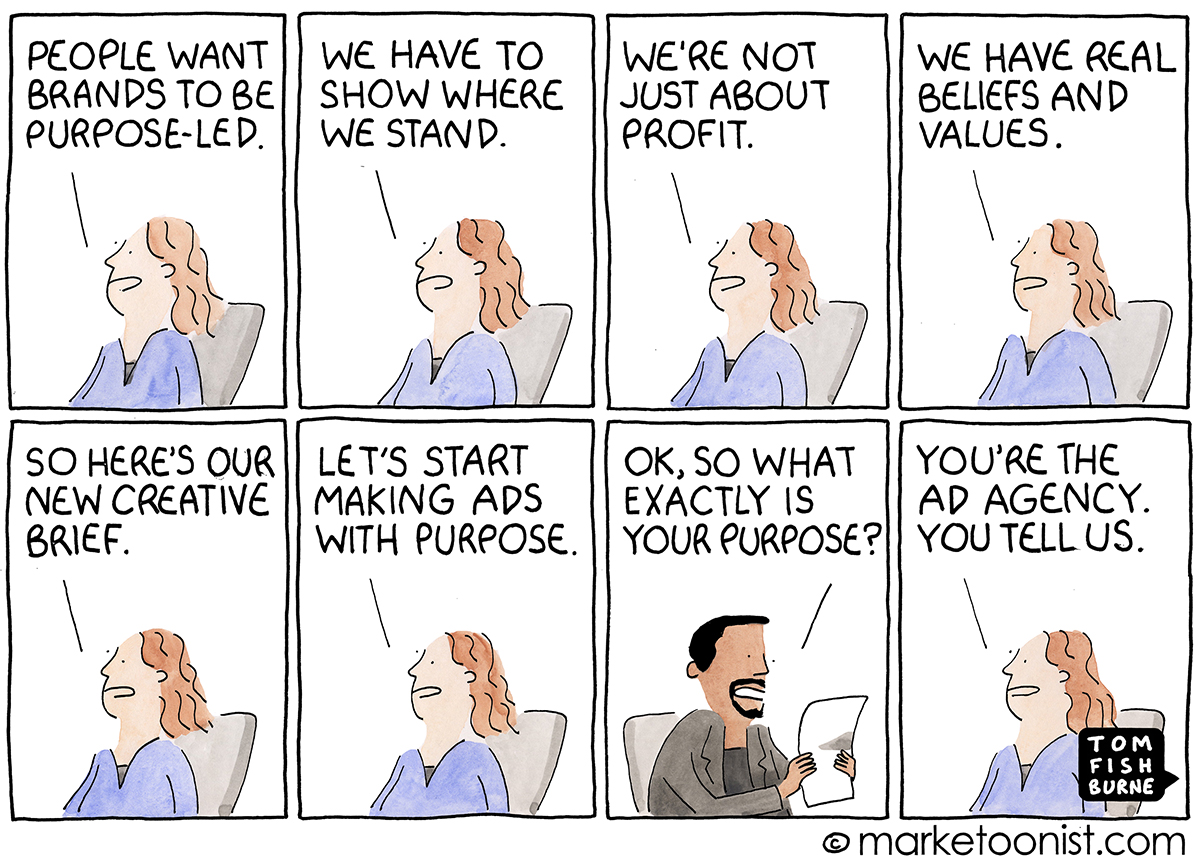“If being purposeful means doing ads to you, then you’re probably doing it wrong.”
I was struck by this observation from the ever-insightful Tom Roach in his essay exploring whether brand purpose is “the biggest lie the ad industry ever told.”
The topic of brand purpose has always inspired some of the most absurd BS in marketing. Last week, Mondelez drew plenty of ridicule in the industry with their announcement that they were introducing a new purpose-led approach to marketing they called “humaning”, which they defined as “a unique, consumer-centric approach to marketing that creates real, human connections with purpose”.
Mondelez went on to proclaim “Humaning is when storytelling becomes storydoing” (leading PR Week to ask, “Did a robot come up with this?”).
There is a brand purpose bandwagon underway, and much of it takes a similar buzzword-laden tone. This can prompt criticism that brand purpose is always a crock. But I think it depends on the brand.
I found Tom Roach’s essay interesting in how he distinguishes between three types of brands that define themselves as having a purpose. The first two he categorized as “Born Purposeful” (think Toms and Patagonia) and “Corporate Converts” (larger businesses like the fashion house Chloé that are trying to re-orient the whole business around a purpose).
Tom’s third category is where I find the most humor, and which inspires the greatest brand purpose backlash:
“And there’s a third kind, on the outer circle, which I would call Pseudo-purposeful brands – these are the ones for which purpose is just a new ad campaign claiming to try and solve an issue like gender or racial equality, or toxic masculinity or whatever the most resonant topic is that their social listening data says is trending with their demographic that month. This is the kind of purpose that’s least likely to become embedded across every function of a business, it was probably cooked up in the marketing department, and so is far less likely to take root within an entire organisation, be taken seriously and gain long-term investment.”
Tom goes on to caution:
“On balance brand purpose is over-used in marketing today and its power over-stated, and it’s actually best used as a business tool by companies that are genuinely committed to conscious capitalism, rather than as a bolt-on by marketing teams looking for a quick sales fix”
Guest Author: BRAND PURPOSE
This article first appeared in www.marketoonist.com
Seeking to build and grow your brand using the force of consumer insight, strategic foresight, creative disruption and technology prowess? Talk to us at +971 50 6254340 or engage@groupisd.com or visit www.groupisd.com/story

